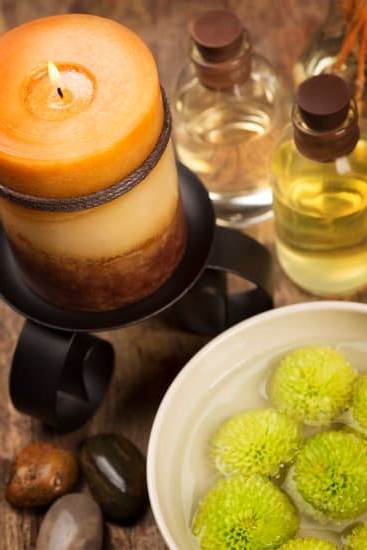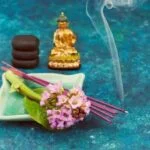Stress is a common issue that many people struggle with on a daily basis, and finding effective ways to destress is essential for maintaining overall well-being. Aromatherapy oils have been widely recognized for their ability to promote relaxation and alleviate stress, making them a popular choice for natural stress relief.
In this article, we will explore how to use aromatherapy oils for destressing, including the benefits, popular oils, different methods of use, DIY blends, specific stress-related conditions, safety precautions, and success stories. Whether you are new to aromatherapy or looking to enhance your existing practice, this comprehensive guide will provide valuable insights on harnessing the power of aromatherapy oils for destressing.
Aromatherapy oils have been used for centuries as a holistic approach to promoting relaxation and reducing stress. Derived from various plants and botanical sources, these essential oils offer a range of therapeutic benefits that can positively impact both physical and emotional well-being. Understanding the origins and history of aromatherapy can provide valuable context for its use in modern-day applications and help individuals tap into the full potential of these natural remedies.
As we delve into this topic further, we will explore the popular essential oils known for their destressing properties such as lavender, chamomile, and bergamot. Each oil possesses unique aromatic profiles and therapeutic effects that make them ideal choices for combating stress and creating a calming atmosphere. Additionally, we will discuss different ways to incorporate these aromatherapy oils into your daily routine to effectively manage stress levels and promote relaxation.
Popular Aromatherapy Oils for Destressing
Aromatherapy oils have been widely used for their destressing properties, offering a natural and holistic approach to relaxation. Certain essential oils are renowned for their ability to calm the mind, alleviate stress, and promote a sense of well-being. When it comes to choosing the right aromatherapy oil for destressing, several popular options stand out for their soothing and calming effects.
Lavender
Lavender is perhaps one of the most popular essential oils for destressing. Known for its gentle floral aroma, lavender oil is cherished for its relaxing and sedative properties. It has been used for centuries to promote relaxation, reduce anxiety, and improve sleep quality. Whether diffused in a room or added to a warm bath, lavender oil can help create a peaceful and tranquil environment conducive to stress relief.
Chamomile
Chamomile essential oil is another favorite choice for destressing due to its sweet, fruity aroma and powerful calming effects. This gentle yet effective oil can help soothe nerves, alleviate tension, and induce relaxation. Whether inhaled through aromatherapy or applied through massage oil blends, chamomile oil can be particularly beneficial for those dealing with heightened stress levels or restlessness.
Bergamot
Bergamot essential oil is well-regarded for its citrusy scent and uplifting qualities that can positively impact mood and emotional well-being. With its unique ability to both energize and calm the mind simultaneously, bergamot oil is often used to combat stress, anxiety, and depression. When diffused or used in massage blends, bergamot oil can help create a comforting atmosphere while promoting a sense of tranquility.
By understanding the properties and effects of these popular aromatherapy oils for destressing like lavender, chamomile, and bergamot individuals can utilize them effectively to manage stress in daily life. Incorporating these essential oils into various applications such as diffusion or topical use allows individuals to experience their beneficial effects on stress reduction and overall well-being.
Different Ways to Use Aromatherapy Oils
Aromatherapy oils can be highly effective in reducing stress and promoting relaxation. There are various ways to incorporate these oils into your daily routine for destressing. Here are some of the different methods you can use to experience the soothing benefits of aromatherapy oils:
- Diffusers: Using a diffuser is one of the most popular and convenient ways to enjoy the aroma of essential oils. Simply add a few drops of your preferred oil into the diffuser with water, and let it disperse the scent throughout your space.
- Massage Oils: Another great way to use aromatherapy oils is by mixing them with carrier oils such as coconut or jojoba oil for a relaxing massage. The combination of gentle massage and the aromatic properties of the oils can help relieve tension in the body and mind.
- Inhalation: Direct inhalation of essential oils can have immediate calming effects. You can add a drop or two onto a tissue or cotton ball, hold it close to your nose, and take deep breaths to inhale the soothing aroma.
- Bath Blends: Adding a few drops of aromatherapy oils to your bathwater can create a luxurious spa-like experience at home. The warm water enhances the aroma and allows you to relax while soaking in the therapeutic benefits of the oils.
By incorporating aromatherapy oils into your daily routine using these methods, you can effectively manage stress and promote overall well-being.
In addition, experimenting with different blends and combinations of essential oils can further enhance their destressing effects. Finding specific blends that work best for you may involve some trial and error, but customizing blends allows you to cater to your personal preferences and needs.
Ultimately, whether it’s through diffusers, massages, inhalation, or bath blends, there are numerous ways to utilize aromatherapy oils for destressing based on individual preferences and lifestyle choices. Experimenting with different methods can help individuals find what works best for them when it comes to achieving relaxation and stress relief through aromatherapy.
DIY Aromatherapy Oil Blends
Aromatherapy oils can be a powerful tool for destressing, and creating your own personalized blends at home can enhance their effectiveness even further. By combining different essential oils, you can tailor the aroma and therapeutic benefits to suit your specific needs and preferences. Here are some easy DIY recipes for creating your own destressing aromatherapy oil blends:
- Relaxing Blend: Combine 3 drops of lavender oil, 2 drops of chamomile oil, and 1 drop of bergamot oil. This blend is perfect for promoting relaxation and easing tension after a long day.
- Calming Blend: Mix 4 drops of cedarwood oil, 2 drops of frankincense oil, and 2 drops of ylang-ylang oil. This blend has a grounding effect and can help quiet the mind during stressful times.
- Citrus Uplift Blend: Blend together 3 drops of orange oil, 2 drops of lemon oil, and 1 drop of grapefruit oil. The bright and refreshing aroma of this blend can uplift mood and provide a burst of energy when feeling emotionally drained.
Customizing your own aromatherapy oil blends allows you to experiment with different combinations and find what works best for you. It’s important to remember that essential oils are highly concentrated, so always dilute them properly with a carrier oil before applying to the skin or using in a diffuser. Additionally, it’s advisable to perform a patch test on a small area of skin first to check for any potential allergic reactions.
By creating personalized aromatherapy oil blends at home, you have the flexibility to adapt the scents and properties according to your individual needs and preferences. Whether you’re looking for relaxation, calmness, or an energy boost, experimenting with DIY aromatherapy blends can be a rewarding and effective way to destress naturally.
Remember that everyone responds differently to essential oils, so it may take some trial and error to find the perfect blend that works for you. But once you discover your go-to combination, you’ll have a potent tool in hand for managing stress and promoting overall well-being through the power of aromatherapy.
Aromatherapy Oils for Specific Stress-Related Conditions
When it comes to addressing specific stress-related conditions, aromatherapy oils can be powerful allies in promoting relaxation and emotional well-being. Whether dealing with anxiety, insomnia, or headaches, certain essential oils have been found to be particularly effective in managing these conditions.
Anxiety
One of the most popular and widely recognized essential oils for alleviating anxiety is lavender. Its soothing aroma has been shown to have calming effects on the mind and body, making it a go-to option for those dealing with heightened levels of stress. Inhaling the scent of lavender oil through a diffuser or adding a few drops to a warm bath can provide relief from anxiety symptoms.
Insomnia
For individuals struggling with insomnia or difficulty falling asleep, chamomile oil is often recommended for its sedative properties. This gentle yet potent oil can be used in aromatherapy diffusers before bedtime or applied topically when diluted with a carrier oil for a relaxing massage. The sweet and floral fragrance of chamomile promotes restful sleep and helps to calm restless thoughts.
Headaches
When it comes to relieving tension headaches or migraines caused by stress, bergamot oil is known for its analgesic and anti-inflammatory properties. The citrusy aroma of bergamot can help to alleviate pain and reduce feelings of stress and tension. Diluting bergamot oil with a carrier oil and applying it to the temples or using it in a cold compress can offer relief from headache discomfort.
Understanding how to use aromatherapy oils for destressing specific conditions involves experimenting with different oils and finding the best methods that work for individual needs. It’s important to pay attention to personal preferences as well as any potential sensitivities when using these oils for stress management.
Safety Precautions and Guidelines for Using Aromatherapy Oils
When using aromatherapy oils for destressing, it is important to prioritize safety and understand the guidelines for their use. Aromatherapy oils are highly concentrated plant extracts that can have potent effects, so it is crucial to handle them with care. One of the most important safety precautions when using aromatherapy oils is proper dilution.
Essential oils should never be applied directly to the skin in their concentrated form, as this can lead to irritation or allergic reactions. It is recommended to dilute essential oils with a carrier oil such as coconut, jojoba, or almond oil before applying them topically.
In addition to dilution, it is essential to be aware of skin sensitivity and potential side effects of aromatherapy oils. Some individuals may be more sensitive to certain essential oils, so conducting a patch test on a small area of skin before widespread use is advisable. Certain essential oils can also cause photosensitivity, making the skin more susceptible to sunburn, so caution should be exercised when applying these oils before exposure to sunlight.
When purchasing aromatherapy oils, it is important to source high-quality products from reputable suppliers. Look for essential oils that are pure and free from synthetic additives or contaminants. Proper storage of aromatherapy oils is also key in maintaining their potency and effectiveness. Essential oils should be stored in dark glass bottles away from direct sunlight and heat to prolong their shelf life.
By following these safety precautions and guidelines for using aromatherapy oils, individuals can enjoy the benefits of these natural remedies for destressing without compromising their well-being or experiencing any adverse effects. Whether diffusing essential oils in a room, using them in massage blends, or creating personalized aromatherapy oil blends at home, being mindful of safety considerations will enhance the overall experience and allow for optimal relaxation and stress relief.
Case Studies and Success Stories
Aromatherapy oils have been used for centuries as natural remedies for destressing and relaxation. Many individuals have experienced firsthand the benefits of using aromatherapy oils to alleviate stress and anxiety. These case studies and success stories offer valuable insights into how different people have incorporated aromatherapy oils into their daily routines to improve their mental well-being.
One noteworthy case study involves a woman who struggled with chronic stress and insomnia. After conducting research on how to use aromatherapy oils for destressing, she began using lavender oil in a diffuser at night. The calming scent of lavender helped her relax and fall asleep more easily, leading to a significant improvement in her overall quality of life. This success story highlights the effectiveness of lavender oil in promoting restful sleep and reducing stress levels.
Another compelling success story comes from a man who suffered from frequent tension headaches due to work-related stress. After learning about peppermint oil’s analgesic properties, he started using a diluted peppermint oil blend for topical application on his temples whenever he felt a headache coming on. The cooling sensation and soothing aroma of peppermint provided quick relief, allowing him to manage his stress-induced headaches effectively without relying on traditional pain medications.
These real-life experiences showcase the therapeutic potential of aromatherapy oils for destressing and provide inspiration for others seeking natural solutions for stress management.
| Case Study | Success Story |
|---|---|
| Woman with Chronic Stress and Insomnia | Improvement in sleep quality with lavender oil |
| Man with Tension Headaches | Relief from headaches using peppermint oil blend |
Conclusion
In conclusion, aromatherapy oils can be powerful tools for destressing and promoting relaxation in our daily lives. Whether through the calming scent of lavender, the soothing properties of chamomile, or the uplifting aroma of bergamot, these essential oils offer a natural and effective way to unwind and manage stress. By understanding the benefits of different aromatherapy oils and learning how to use them effectively, individuals can harness the power of these natural remedies to improve their overall well-being.
As mentioned in this article, there are various ways to incorporate aromatherapy oils into our routines for destressing. From diffusing the oils with a diffuser or inhaler to creating personalized blends for massage or bath, there are plenty of options to explore. With the DIY recipes provided, individuals can also experiment with customizing their own aromatherapy oil blends tailored to their specific needs and preferences.
Furthermore, it’s important to note that using aromatherapy oils for destressing should be approached with caution and proper knowledge. Safety precautions such as dilution, skin sensitivity, and purchasing high-quality oils are crucial considerations.
Additionally, seeking guidance on using aromatherapy oils for specific stress-related conditions such as anxiety or insomnia is recommended for optimal results. Ultimately, by embracing the potential of aromatherapy oils for destressing and following the guidelines outlined in this article, individuals can discover a natural and holistic approach to managing stress and improving their overall well-being.
Frequently Asked Questions
How Do You Use Aromatherapy for Stress Relief?
Aromatherapy can be used for stress relief by using essential oils in a diffuser, adding a few drops to a warm bath, or applying diluted oil to the skin through massage. The scents of certain oils can help relax the mind and body.
What Essential Oils Are Good for Destressing?
Some essential oils that are good for destressing include lavender, chamomile, bergamot, and ylang-ylang. These oils have calming and soothing properties that can help reduce stress and anxiety when used in aromatherapy.
How Do You Use Stress Away Essential Oils?
Stress Away essential oils can be used by inhaling the scent directly from the bottle, adding a few drops to a diffuser, or diluting with a carrier oil and applying to pulse points or the back of the neck. The blend of lime, vanilla, copaiba, and other oils is known for its calming effects on the mind and body.

Are you looking for a natural way to improve your health and wellbeing?
If so, aromatherapy may be the answer for you.





